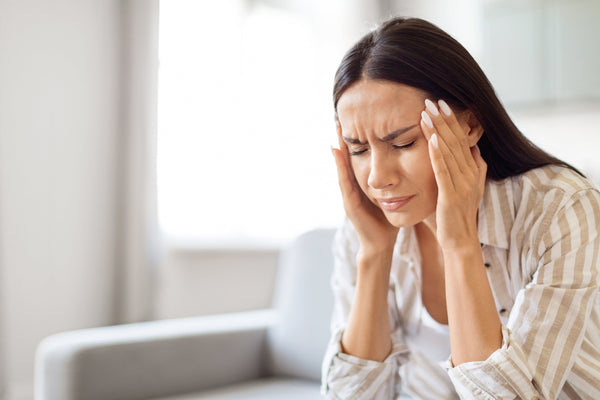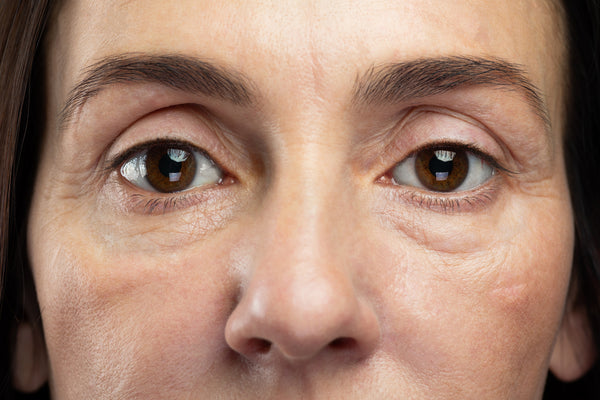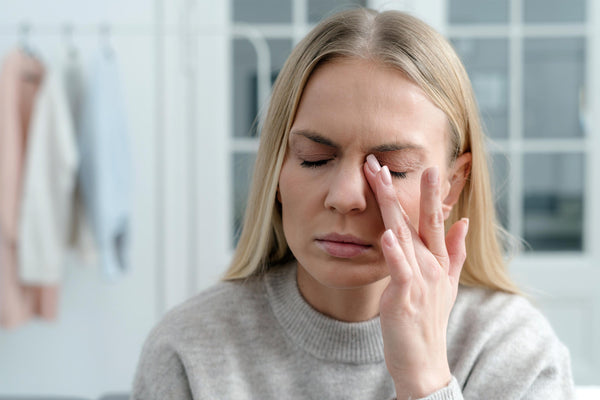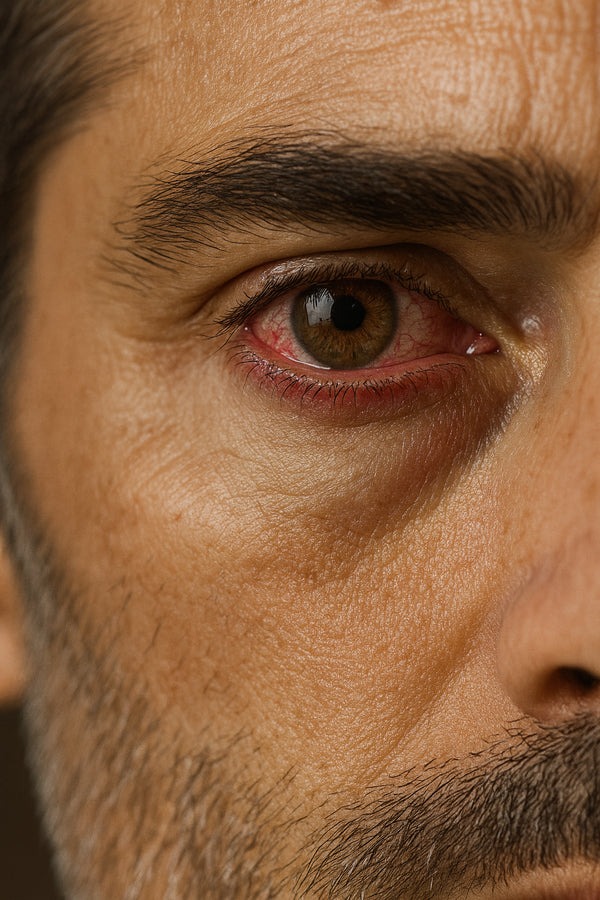
What is dry eye syndrome?
Dry eye syndrome, also known as dry eye disease, is a relatively common condition that happens when your eyes either don’t produce enough tears or produce tears that are of a poor quality. When this happens, it means your corneas aren’t lubricated properly and can feel itchy, gritty, or uncomfortable. Even if your eyes are watery, you can still experience dry eye syndrome.
How do tears work?
Tears are produced by several glands around the eye, the majority produced by a gland called the lacrimal gland. But they’re not just produced when you cry. They’re produced all the time and consist of 3 different layers. When you blink, your eyelid distributes the tears across your eye, keeping it moisturised and hydrated.
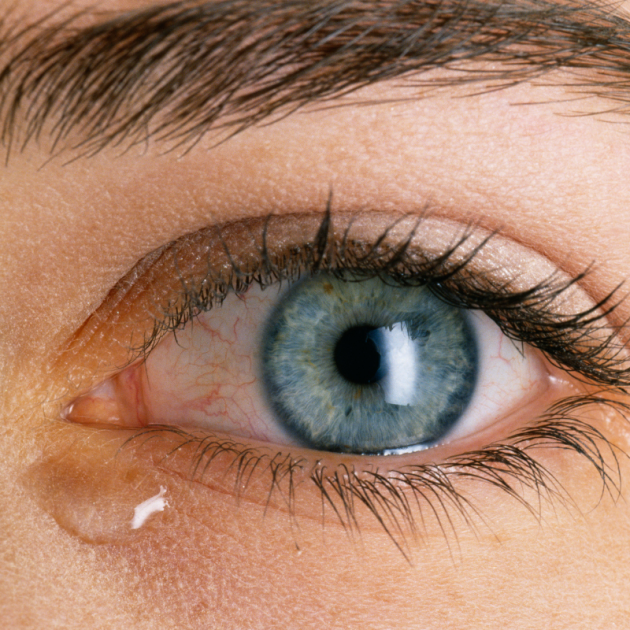
The 3 layers are:
- Mucin layer – which lines the surface of your eye (the cornea) and makes the tears stick.
- Aqueous (water) layer – this moisturises and protects the eye.
- Lipid (oily) layer – sits on the outer surface of the tear film and prevents the tears from evaporating or spilling out of the eye.
If there’s a breakdown in the production of any of those layers, it can leave an imbalance in the tear film which leaves you with dry eyes. For example, if the lipid layer isn’t produced properly, there isn’t enough to keep the aqueous layer in place meaning it evaporates too quickly. And, if there is a reduced amount of aqueous layer, there’s not enough moisture to keep your eyes hydrated and not enough tears are being produced.
Symptoms
Dry eye syndrome will usually occur in both eyes and can include symptoms like:
- Gritty feeling in the eyes
- Itchy eyes
- Burning or stinging sensation
- Intermittent blurry vision
- Excessively watery eyes
- Discomfort when wearing contact lenses
When should I see my GP?

More severe complications of dry eye can lead to symptoms which might need medical attention.
If you experience:
- extreme light sensitivity (photophobia)
- very red or painful eyes
- a change in vision
Contact your optometrist, to book a dry eye appointment with us.
Causes
Tears are an important part of overall eye health. They help to keep your eyes moisturised, clear away dust or debris from the surface of your eyes, keep vision clear, and can help to protect your eyes against infections. Dry eyes happen when your eyes stop making tears as they should.
Common factors that can contribute towards a development of dry eye syndrome include:
- Blepharitis – an inflammation of the eyelid and around the eyelashes, which can also disrupt the glands responsible for producing tears and is responsible for around 85% of dry eye cases.
- Hormonal changes – such as menopause, thyroid disease, or diabetes.
- Environmental factors – like hot or windy environments, or if you spend a lot of time in a place with air conditioning
- Recent laser eye surgery
- Age
- Activities that cause eye strain – such as spending a lot of time looking at screens can mean you maybe not be blinking efficiently
- Using contact lenses
- Underlying medical conditions – conditions such as diabetes, rheumatoid arthritis or Sjögren's syndrome can all affect your tear production
- Certain medications – such as certain antihistamines
- Alcohol usage – can dehydrate you and affect the quality of your tears
Treatment
Thankfully, there are many ways to manage dry eye syndrome – both with home remedies and medication – to help ease the symptoms and make sure you’re more comfortable.
- Cleaning your eyelids everyday with eye lid scrubs, wipes or foams can help remove bacteria, debris and oil that might lead to blockage of the glands and cause dry eye syndrome.
- Eye drops are readily available in most pharmacies – also called artificial tears – and can help to manage symptoms and replace tears that your eyes aren’t producing.
- Humidifier – if you live in an arid environment or have central air heating or conditioning that is causing your dry eye problems, getting a humidifier can help replace some of the moisture in the air that might be contributing to your dry eyes.
- Make sure you drink plenty of water each day as dehydration can lead to dry eye problems or make existing problems worse.
- If wearing contact lenses causes dry eyes, try to limit how much you wear them. You may also find that using contact lens-friendly eye drops will help ease your symptoms while you’re wearing them.
- If you suspect that your dry eyes are caused by a medication you’re taking, discuss this with your GP. they may be able to prescribe you an alternative treatment.
- If you believe that an underlying condition may be the cause, this is another reason to speak to your GP. By treating the underlying condition, you may be able to ease the dry eye symptoms as well.
Additional in-practice treatment options include:
- Intense Pulsed Light (IPL) Treatment – A light-based therapy that helps reduce inflammation and improve the function of the meibomian glands, which are essential for producing the oily layer of your tears.
- Low-Level Light Therapy (LLLT) – A gentle, non-invasive treatment using specific wavelengths of light to stimulate healing and reduce inflammation, improving eye comfort and relieve dry eye symptoms.
- Microexfoliation and Massage Treatment – This involves gently exfoliating and cleansing the eyelid edges with a soft tip, improving both eyelid hygiene and gland function.
- ZEST (Zocular Eyelid System Treatment) – A deep-cleansing eyelid treatment using an okra-based solution to remove bacteria, biofilm, and debris, promoting healthier eyelids and reducing dry eye symptoms.
Takeaway
Dry eye syndrome is a relatively common problem and happens when your eyes don’t produce tears of good enough quality or quantity to keep your eyes properly lubricated.

It can be managed with products like artificial tears, but if that’s not enough, specialist treatments are available as options for more severe cases.
If you’re concerned about your dry eye condition or your overall eye health, speak to your optometrist for advice and help.



